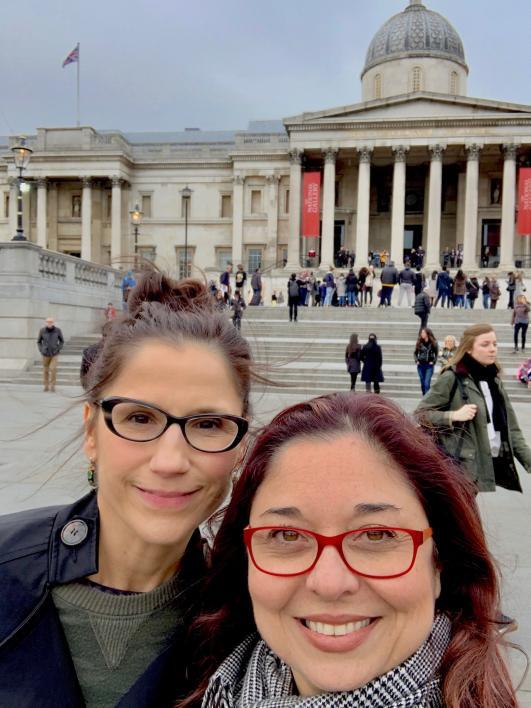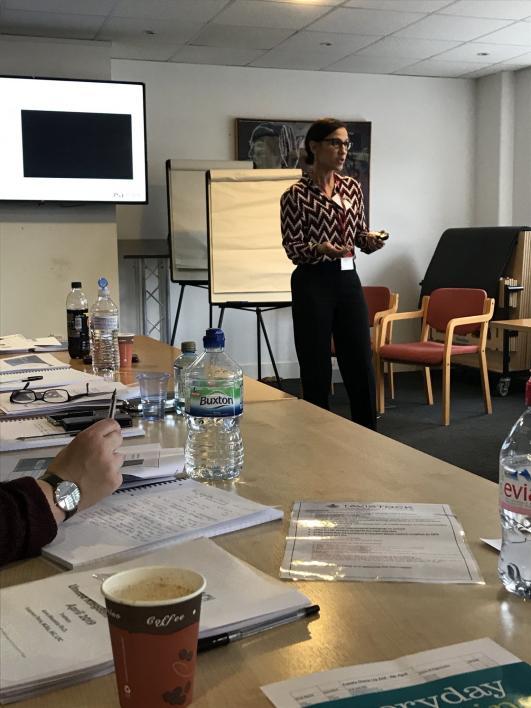ASU researchers lead family intervention research in the UK

As part of a cost-savings initiative, the U.K. Department of Work and Pensions recently selected four evidence-based interventions to test whether they reduced conflict and promoted well-being in families. The ASU REACH Institute Family Check-Up was one of the four programs. Photo by Luca Micheli on Unsplash
Do happy, well-functioning families benefit the economy? The government of the United Kingdom wants to know, and they partnered with researchers in the Arizona State University REACH Institute for help finding the answer.
The U.K. is home to 2.5 million divorced or separated families, which include 3.9 million children. Among these families, many are underemployed or receive support from the state. The Department of Work and Pensions in the United Kingdom want to find out if evidence-based programs that reduce family conflict and improve family stability will also reduce the economic burden of divorce and separation on the state.
As part of a cost-savings initiative, the U.K. Department of Work and Pensions recently selected four evidence-based interventions to test whether they reduced conflict and promoted well-being in families. The REACH Institute Family Check-Up was one of the four programs.
The motivation behind the initiative is to demonstrate a benefit to families and the U.K. economy.
“The U.K. Department of Work and Pensions believes that when families are functioning better, they are more likely to work and are less likely to need a pension,” said Anne Mauricio, associate research professor. “We knew the Family Check-Up could help families function better.”
The Family Check-Up supports positive parenting and family management practices to strengthen family relationships. The program is a collaborative, assessment-driven, strengths-based approach that uses motivational interviewing. It includes an initial interview, family assessment with videotaped observation and a feedback session that involves parents and practitioners collaboratively setting intervention goals that include evidenced-based parenting supports delivered using the Everyday Parenting curriculum.
Research has shown that children of parents who participate in the Family Check-Up program have fewer problem behaviors, improved emotion regulation, reductions in substance use and a decreased risk for obesity and child neglect and abuse. Children also experience heightened self-esteem, better coping skills and improved academic performance. These changes in child behavior are attributable to increases in positive parenting and to decreases in family conflict as well as maternal depression.
Mauricio and Yasaman Parsi, program coordinator senior, recently trained 30 U.K. practitioners how to deliver the Family Check-Up. The training included dialogue between ASU researchers and U.K. practitioners about potential cultural barriers and how to best adapt the Family Check-Up program to ensure success.
“Interventions are often designed for laboratory settings, in which everything works optimally, but that’s not real life.” Parsi said. “We want to demonstrate the real-world applicability of the Family Check-Up.”
Honoring Tom’s legacy
Related: Tom Dishion recognized for pioneering contributions to child intervention science
The trip Mauricio and Parsi took to the U.K. was also in honor of the late Thomas Dishion, Regents Professor of psychology and the developer of the Family Check-Up.
“This initiative started in 2017, and Tom was part of the inception,” Mauricio said. “It feels good to continue the work that he started and to help promote an intervention that helps children and families around the world.”
The Family Check-Up is currently used in Sweden, Canada, Norway, the Netherlands and the United States.
More Science and technology

Lucy's lasting legacy: Donald Johanson reflects on the discovery of a lifetime
Fifty years ago, in the dusty hills of Hadar, Ethiopia, a young paleoanthropologist, Donald Johanson, discovered what would…

ASU and Deca Technologies selected to lead $100M SHIELD USA project to strengthen U.S. semiconductor packaging capabilities
The National Institute of Standards and Technology — part of the U.S. Department of Commerce — announced today that it plans to…

From food crops to cancer clinics: Lessons in extermination resistance
Just as crop-devouring insects evolve to resist pesticides, cancer cells can increase their lethality by developing resistance to…

